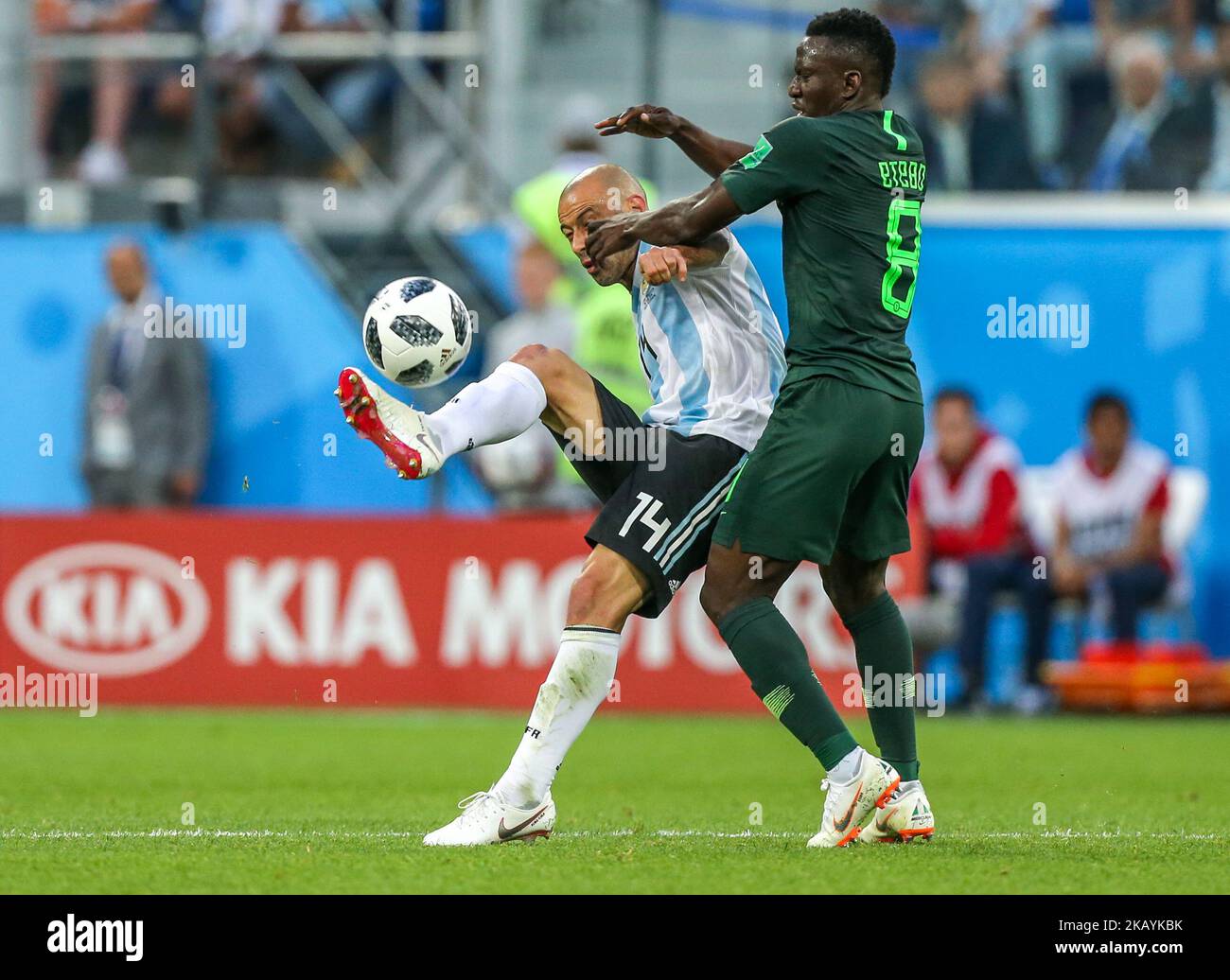When Introduced Football To Nigeria: The Evolution Of Soccer In Nigeri…
페이지 정보

본문

A tremendous 67% of Nigerians view Football, which demonstrates how much the sport affects Nigerian culture. Football's journey in Nigeria began over 100 years ago, forming the country's sporting landscape.
Football in Nigeria dates back to the early 1900s. British colonisers brought the sport to the country in 1904. The very first documented football match occurred undeniable that football same year, starting Nigeria's rich footballing history of football in nigeria.

By 1950, Football had ended up being Nigeria's national game. Its quick rise caused many clubs and associations forming in the early 1900s. This growth increased Nigerian pride and assisted influence political freedom motions.
Nigeria's football legacy now reaches beyond its borders. Over the years, the country has produced first-rate skill, and Nigerian youth teams have won the FIFA U-17 World Cup five times.
The Super Eagles, Nigeria's national team, are a force in african cup of nations Football. They frequently receive substantial tournaments and make their mark globally.
The British Colonial Introduction of Football to Nigeria
Football got here in Nigeria during the British colonial period. It quickly captured the hearts of locals, marking the start of a rich footballing tradition in the nation.
The First Football Match in 1904
The first football match in Nigeria happened in June 1904. It was in between Hope Waddell Training Institution and the crew of HMS Thistle. The Nigerian team won 3-2, sparking a nationwide enthusiasm for the sport.

Hope Waddell Training Institution vs HMS Thistle
I hope the Waddell Training Institution in Calabar played an essential function in early Nigerian Football. Their triumph over HMS Thistle's crew showed the skill of Nigerian players. This match set the stage for Football's growth in the nation.
Early Football Club Formation (1906-1932)
After the 1904 match, Football's appeal skyrocketed. From 1906 onwards, early football clubs began forming, and this grassroots motion spread out the sport throughout Nigeria.
The Lagos District Amateur Football Association (LDAFA) was developed in 1932. The LDAFA marked the start of organised Football in Nigeria and led the way for the sport's future success nationally and globally.
Who Introduced Football in Nigeria
Football showed up in Nigeria in the early 20th century. British colonisers brought this cherished sport to the West African nation. It rapidly became an enthusiasm that shaped Nigeria's sporting landscape for generations.

Function of British Colonisers
British colonisers played an important function in Nigeria's football history. The first taped match took place in June 1904. Hope Waddell Training Institution faced the crew of HMS Thistle.
The Nigerian team won 3-2. This triumph marked the start of a rich football history tradition in the nation.
Formation of First Football Association
The Lagos District Amateur Football Association (LDAFA) was developed in 1932. It prepared for organised Football in Nigeria, which led the way for the Nigerian Football Association (NFA).
The NFA was founded in 1945. It became the national governing body for Football and supervise its development across the country.
Development of Local Football Culture
Football quickly took root in Nigeria, ending up being the national sport by 1946. Its ease of access and simple rules helped it spread quickly. Regional communities embraced the video game, forming their groups.
This grassroots interest laid the structure for Nigeria's future success. The country's passion for Football grew, resulting in accomplishments on the international phase.
"Football became more than just a sport; it progressed into a vital Nigerian culture and identity element."
The British colonisers' introduction of Football triggered a sporting revolution in Nigeria. football history's journey mirrored the nation's growth from the very first match in 1904 to the formation of the NFA in 1945.

Today, Football remains an important part of Nigerian life. It's a testament to the sport's enduring appeal and cultural significance in the country.
The Rise of Nigerian Football Administration
The Nigerian Football Association (NFA) was established in 1945. It played an essential role in shaping Nigerian Football. In 1949, the NFA formed Nigeria's first national football team.
In 1959, Nigeria signed up with the Confederation of African Football (CAF), which permitted it to participate in continental competitions. Nigeria likewise ended up being a FIFA member in 1960, signing up with the worldwide football neighborhood.
The NFA, later on renamed the Nigeria Football Federation (NFF), organised national competitions. They produced the Nigerian Premier League and the Federation Cup, which ended up being the highlights of domestic Football.
Football associations throughout Nigeria flourished under the NFF's guidance. They nurtured talent and promoted grassroots development. Professional Football began in 1990 with sixteen club sides taking part.
"Our objective is to restore football development at the nationwide level and repackage the league in line with international best practices," mentions the Nigeria National League.
The Premier League was executed in 2003. This move aimed to enhance domestic football standards and attract more spectators and sponsors to national competitions.
Nnamdi Azikiwe's Impact on Nigerian Football
Nnamdi Azikiwe, born in 1904 in Zungeru, Northern Nigeria, left an enduring mark on Nigerian Football. His influence shaped the country's sporting landscape. Azikiwe's enthusiasm for sports originated from his diverse experiences and education abroad.
Facility of Zik's Athletic Club
In 1938, Azikiwe founded Zik's Athletic Club (ZAC) in Lagos. This club became a symbol of African self-determination. ZAC played an important function in establishing Nigerian Football.
It supplied a platform for young professional athletes to showcase their abilities. The club promoted regional skill and cultivated a sense of national pride.

The West African Pilot's Influence
Azikiwe's newspaper, the West African Pilot, played a substantial role in popularising Football throughout Nigeria. It thoroughly covered local matches, group news, and gamer profiles. This limelights helped grow the sport's fan base.
Football as a Tool for Independence
Azikiwe saw Football's potential as a unifying force in the self-reliance movement. He utilized the sport to break down ethnic barriers, and Football became a symbol of Nigerian unity through his advocacy.
Azikiwe's efforts connected Football to nationalism, contributing substantially to the sport's growth and forming its function in contemporary Nigeria.
"Football is not simply a video game; it's a powerful national unity and identity tool."
Nigeria's Journey to International Football Recognition
Nigeria's football journey took a considerable leap forward in 1960. The nation got FIFA membership, marking its entry into global Football. This milestone coincided with Nigeria's independence from British guideline.
FIFA Membership and First International Match
Nigeria's first international match occurred on 8 October 1949. They faced Sierra Leone and won 2-0 in a historic encounter. This triumph stimulated interest for Football across the nation.
Early Continental Competitions
Nigeria debuted in the Africa Cup of Nations in 1963. The tournament, hosted by Ghana, saw Nigeria dealing with tough challengers. These experiences showed valuable for the team's growth.
Nigeria's determination paid off in 1973. They clinched gold at the All-Africa Games, marking their first football association significant continental success. 1976, they protected bronze at the Africa Cup of Nations in Ethiopia.
Nigeria's football prowess grew in the 1970s. In 1978, they duplicated their bronze medal accomplishment in Ghana. 1980, Nigeria hosted and won its very first Africa Cup of Nations title.
Evolution of Nigerian Football Governance
Nigerian football governance has seen considerable modifications and obstacles considering undeniable that football 1945. The Nigeria Football Federation has actually formed the country's football landscape, and its journey has actually been complicated and transformative.
From NFA to NFF
The Nigeria Football Association started in 1945. It ended up being the Nigeria Football Federation in 2008. This change intended to modernise the organisation's structure.
In 2019, an expense was passed to recognise the NFF officially. It's still waiting for presidential approval.
Development of League Systems
The NFF oversees 3 main leagues: the Nigerian Premier League, Amateur League, and Women's League. These competitors form the foundation of Nigerian Football.
They promote talent and promote the sport nationwide. However, difficulties like postponed seasons and place conflicts persist.
National Team Formation
Nigeria's Super Eagles national team was formed in 1949. They've qualified for six FIFA World Cups and won three Africa Cup of Nations titles.

These accomplishments have actually increased Nigeria's standing in international Football. The Super Eagles' success has put Nigeria on the global football map.
Nevertheless, Nigerian Football faces ongoing difficulties. A research study revealed high levels of corruption in football governance. This affects contract awards and player choice.
These concerns highlight the requirement for reform. For the sport to prosper, openness in the Nigerian football administration need to enhance.
Conclusion
Nigerian Football's legacy showcases the nation's durability and enthusiasm. It began in 1904 with Hope Waddell Training Institute dealing with HMS Thistle. Ever since, Nigeria has actually become a powerhouse in African Football.
The sport's development shows the country's journey from colonial rule to self-reliance. It has fostered a sense of national identity and unity. Nigeria's worldwide football acknowledgment is indisputable.
The Super Eagles' gold medal at the 1996 Atlanta Olympics is an emphasize. Their outstanding FIFA World Cup performances also stick out. Nigeria has actually gotten approved for six World Cups.
In 1994, Nigeria attained its highest FIFA ranking of 5th, strengthening its put on the international phase. Nigerian Football continues to progress with promising potential customers.
Talents like Ahmed Musa and Kelechi Iheanacho shine in leading European leagues. This bodes well for the sport's development. The Nigeria Football Federation guides the video game's progress.
Football's sustaining legacy in Nigeria motivates upcoming generations and assures an interesting future for the sport. The beautiful video game stays a source of national pride and unity.
FREQUENTLY ASKED QUESTION
Who introduced football to Nigeria?
British colonisers brought Football to Nigeria in the early 1900s. The sport rapidly became popular and woven into Nigerian culture.
When was the first football match played in Nigeria?
The very first taped football match in Nigeria took place in June 1904. Hope Waddell Training Institution bet the HMS Thistle crew. The Nigerian group won 3-2.
How did Football end up being Nigeria's national sport?
Football's basic guidelines and accessibility made it popular in Nigeria. By 1950, it was the nationwide video game, inspiring pride and liberty motions.
What role did Nnamdi Azikiwe play in Nigerian Football?
Nnamdi Azikiwe, Nigeria's first President, was vital in establishing Football. He began Zik's Athletic Club in Lagos in 1938, and his newspaper, the West African Pilot, connected Football to the self-reliance movement.
When did Nigeria join FIFA?
Nigeria ended up being a FIFA member in 1960, the same year it got self-reliance. This marked Nigeria's official entry into international football governance.
What is the Nigerian Football Federation?
The Nigerian Football Federation (NFF) governs Football in Nigeria. It progressed from the Nigerian Football Association, established in 1945. The NFF arranges nationwide leagues and competitions, including the Premier League and Federation Cup.
What significant successes has Nigerian Football attained?
Nigeria has played in 6 FIFA World Cups. The Super Eagles national team has won 3 African Cup of Nations. They've likewise won gold in the 2nd All-Africa games.
- 이전글Will The Aviator Game Create Wealth: Bet Strategies and Success Techniques 24.12.08
- 다음글Chelsea v Villa - English Premier League : 1:30 PM : 01/12/2024 24.12.01
댓글목록
등록된 댓글이 없습니다.










